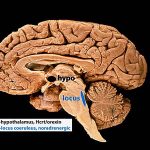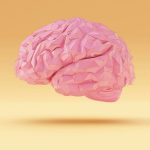Brain & Mind
How a tiny part of the brain helps us break life into memories
While life seems like one long, continuous flow of experiences, our memories don’t work that way.
Instead of remembering everything as one big blur, our...
Feeling lonely may raise your risk of diabetes, study finds
New research shows that older adults who feel socially isolated may be more likely to develop diabetes and struggle with managing their blood sugar.
The...
Can stress really harm your heart?
Most people experience stress at some point in their lives. It can come from work, money problems, family issues, or even just the fast...
Handling stress well may make you a friendlier, more outgoing person
A new study from Michigan State University suggests that how you manage daily stress can actually shape your personality over time.
According to the research,...
Study shows root cause of alcohol addiction in the brain
Alcohol addiction, also called alcohol use disorder, is a serious and common mental health issue around the world. It can have a major impact...
How blood pressure affects brain health as we age
A recent study from the University of Miami has revealed new insights into how blood pressure affects our brain as we get older.
The findings...
Does memory loss always mean dementia?
Many people worry when they or someone they love starts to forget things more often.
It’s common to wonder, “Is this normal aging or is...
Eight or more drinks every week may cause brain injury in older people
Drinking heavily—eight or more alcoholic drinks per week—may increase the risk of brain damage and cognitive problems, according to a new study published on...
ADHD in adults may increase risk of dementia, study finds
A new study from Geneva has found that adults with Attention Deficit Hyperactivity Disorder (ADHD) may be more likely to develop dementia as they...
This blood pressure number may influence your emotions
When we think about blood pressure, we often focus on numbers and heart health. But new research suggests that blood pressure—especially the lower number...
Understanding ADHD diagnosis and treatment in adults
ADHD, or Attention-Deficit/Hyperactivity Disorder, is often thought of as something that only affects children. But in fact, many adults live with ADHD, whether they...
Study links some blood pressure drugs to higher suicide risk
A new study from St. Michael’s Hospital has raised concerns about a possible link between a commonly used blood pressure medicine and a higher...
Popular Reports
When sadness hurts: how strong grief can affect your heart
Grief can be so intense that it actually increases your blood pressure. This is what a group of researchers found in a recent study.
This...
Why “magic mushrooms” could help treat depression
Scientists from Imperial College London found psilocybin, the psychedelic compound found in magic mushrooms, helps to "open up" depressed people's brains, even after use,...
Older adults with depression show distinct driving patterns
A recent study reveals that older adults with major depressive disorder (MDD) tend to drive in riskier ways compared to those without the condition.
Published...
Watch out for these mental problems in COVID-19 pandemic, scientists warn
In a new study, researchers found evidence of a record high in anxiety attacks or panic attacks through Google searches.
The research was conducted by...
This single brain region links depression, anxiety, and heart disease
Over-activity in a single brain region called the subgenual anterior cingulate cortex (sgACC) underlies several key symptoms of mood and anxiety disorders, but an...





















